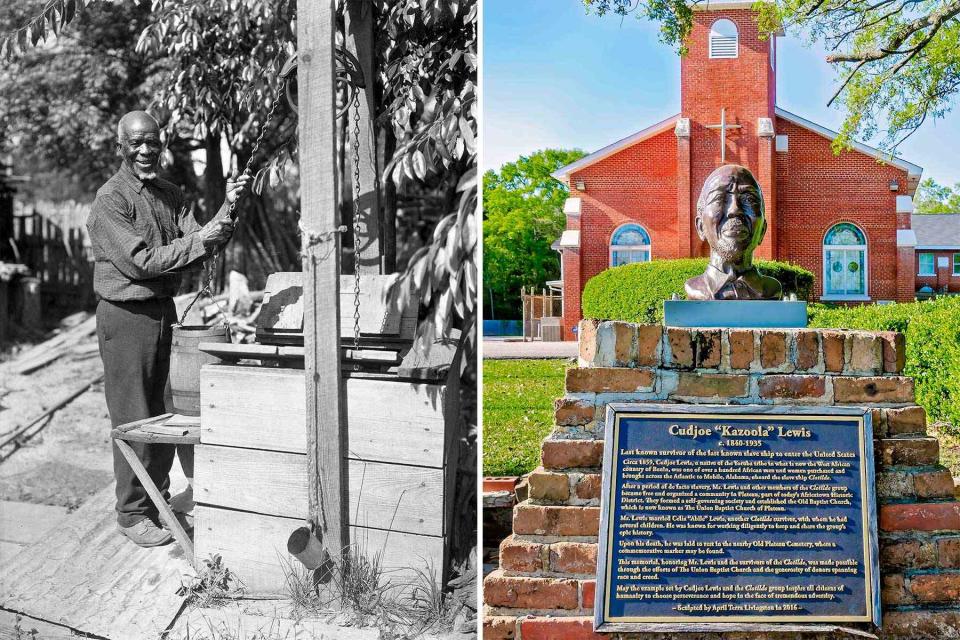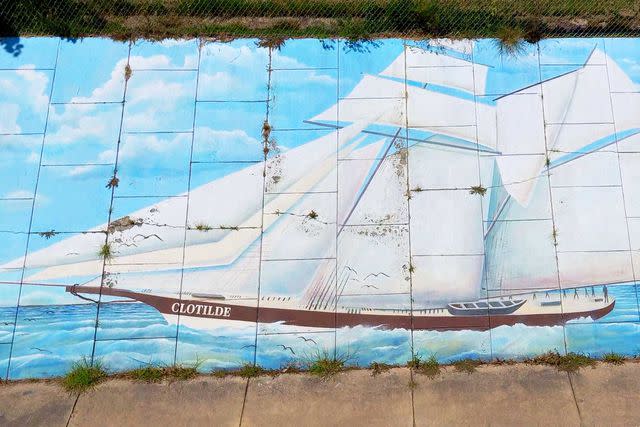A New Museum Will Tell the Stories of Mobile, Alabama's Africatown Community
Archaeologists are recovering the remains of the "Clotilda," the last ship to smuggle enslaved Africans into the United States. The forthcoming Africatown Heritage House is dedicated to the stories of its passengers — and Africatown, the place they built.

From left: Erik Overbey Collection, The Doyle Leale McCall Rare Book and Manuscript Library, University of South Alabama; Carmen K. Sisson/Cloudybright/Alamy
From left: Oluale Kossola, one of the last known survivors of those kidnapped aboard the Clotilda, in the community he helped found; a bust of Kossola (renamed Cudjoe Lewis) in front of Africatown’s Union Missionary Baptist Church.In 1860, more than half a century after the slave trade was federally abolished, the Clotilda sailed into Mobile, Alabama, carrying 110 enslaved West Africans. The human cargo was unloaded, and the schooner was set alight to hide the evidence. But its impact can still be felt in Africatown, a district established after Emancipation by those who had arrived on the ship. Many residents can still trace their lineage to those founders.
The Clotilda remained lost until 2019 when, more than 150 years after it sank, archaeologists discovered the remains at the bottom of the Mobile River. Scholars have since been studying the submerged ship in hopes of unearthing the many stories it might tell. Next year, the Alabama Historical Commission and the History Museum of Mobile will unveil a landmark project: the Africatown Heritage House, an interpretive center that will house the pieces that have been recovered so far. The museum will also tell the dramatic stories of kidnapped West Africans and the resilient Black community they created — the subject of works like Bob Marley’s “Buffalo Soldier,” Zora Neal Hurston’s "Barracoon: The Story of the Last 'Black Cargo,'” and the Netflix documentary "Descendant," presented by Barack and Michelle Obama's Higher Ground Productions.
Related:

Oliver Dorgan/Courtesy of Visit Mobile
A mural of the Clotilda along Africatown Boulevard.The museum is “a collaborative effort to share the long-doubted, inspirational story of the Clotilda, its captives, and their unique place in the history of this country,” says Mobile County commissioner Merceria Ludgood. “Their story is an American story.”
Bringing together the voices of current Africatown residents and historians from around the country, the Heritage House will display historic documents, archival images, and never-before-seen artifacts, alongside first-person accounts, from the Clotilda’s landing to the present day. The immersive experience culminates with a room dedicated to the future of Africatown — asking visitors to reflect on the legacy of the Clotilda and the lives it changed.
A version of this story first appeared in the November 2022 issue of Travel + Leisure under the headline "Coming to the Surface."
For more Travel & Leisure news, make sure to sign up for our newsletter!
Read the original article on Travel & Leisure.

